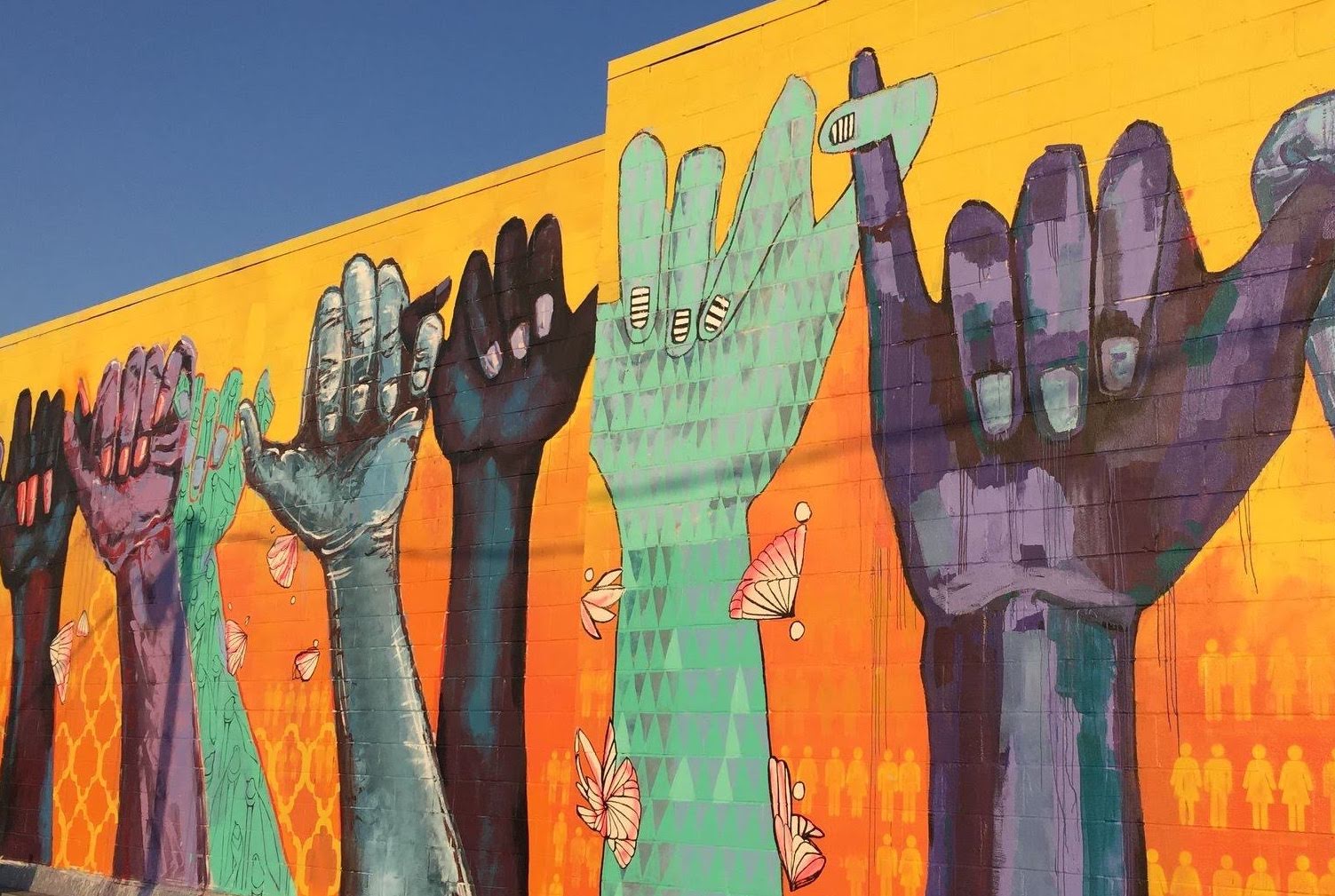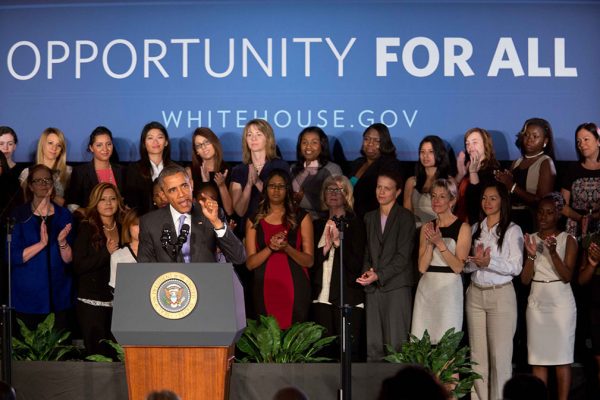I began my essay by outlining what David Roediger helpfully names an “antinomy” of solidarity. On the one hand, solidarity is an essential component of struggles for justice, but on the other hand, actually existing injustice seems to render it impossible. Other antinomies have emerged from the responses. Sarah Schulman notes that oppressed people often need the help of a third party to overturn their oppression, but that third parties can create “more difficulty for the person or community being assisted.” Nathan DuFord identifies an antinomy of endurance: in order for organizations to endure, they need a certain conservatism, but that same conservatism can thwart the radicalism that enables organizations to take risks in order to make change—both internally and in the world. And Alex Gourevitch points to an antinomy of transformation: in order to counter the domination that structures our society, we need capacities and self-understandings that domination makes it difficult for us to develop.
As I see it, any process of making a new world from within the old is inevitably accompanied by these and other seemingly unresolvable paradoxes. And yet, organizers find resolutions all the time, even if only provisionally. I think this forum has succeeded at two politically useful tasks of political theory: it has clarified the antinomies that attend the practice of solidarity so that we, as organizers, can better understand why we struggle—and often fail—in the ways that we do, and it has pointed toward some practical resolutions.
As Astra Taylor and Leah Hunt-Hendrix note, and as the range of responses demonstrates, “solidarity” has many meanings. Jodi Dean suggests that my understanding of solidarity is “social” rather than “political.” I think this is in part because I (implicitly) define solidarity simply as collective action in pursuit of shared goals. This definition captures the activity of Mormons as well as the members of the old Communist Party that Dean and Gourevitch reference. With Taylor, Hunt-Hendrix, Roediger, and DuFord, I find it useful to define solidarity broadly—not only as a practice of the left—in order to see the (sometimes unexpected) similarities and differences between the activities of collectives oriented toward very different goals. The kind of solidarity that I aim to cultivate in my own organizing is oriented toward a vision of socialism, but many forms of solidarity are not so oriented. As Roediger notes, some are even reactionary.
Admittedly, my essay does attempt to blur the boundaries between the social and the political. As a result, Dean and Burden-Stelly both read me as saying that solidarity is about “the social texture of community” or “belonging” rather than politics and struggle. In fact, I think that solidarity is often social and political at once, even though the people who act in solidarity with each other do not always understand their actions this way. Mormons do not understand the Mormon Church to be a political organization, but I would argue that it is, insofar as it engages (sometimes very influentially) in struggles over the distribution of power and resources in society. Similarly, many leftists reject the possibility that a desire for belonging or collectivity might be driving their political activity. My purpose in exploring my own multiple and simultaneous motivations for organizing was to suggest that, if we are honest with ourselves, the very real human desire for collectivity—a desire that Dean herself writes about powerfully in her works on the party and comradeship—is a big part of what drives most of us to organize. The experience of injury and the need to survive, as Gourevitch, Reverend William Barber II, and Reverend Liz Theoharis powerfully illustrate through historical and contemporary examples, is a potent motivation. But not everyone who is injured decides to organize. It is often a need for sociality that draws people into organizing, at least in the beginning. We should acknowledge this desire—so often denied by neoliberal capitalism—and find ways to help people to satisfy it, rather than disavowing it.
Another reason I emphasize the social dimension of solidarity is that, like HoSang and Gourevitch, I think neoliberalism’s four-decade-long erosion of society has decimated the organizational infrastructure and social capacities on which radicals of past generations could draw. Communist organizers like William Z. Foster turned to mainstream labor unions, churches, and fraternal organizations to connect the party to a mass base. Such organizations have since dramatically declined, making the task of organizing the working class much more challenging today. As HoSang notes, neoliberalism has also atrophied the “muscles” we need in order to organize. Jakobi Williams recounts that Bob Lee honed his organizing skills by observing activists in his mother’s nightclub, his father’s civil rights organizing, and the labor organizing of longshoremen at the union hall across the street from his childhood home. Today there are few Bob Lees among us. We suffer from atomization, individualism, competitiveness, social anxiety, and a lack of resilience to conflict—not only over identity but over anything. It is these effects of neoliberalism (not excessive uncritical unity, as Burden-Stelly suggests) that I take to be the central obstacle to building solidarity in our time.
In response to this obstacle, I suggest that we cultivate social endurance: the capacity to show up to meetings and work together, even when we don’t know what kind of conflict lies in store for us, and even when we do not particularly like the other people in the room. Political endurance, which we might define as the capacity to maintain fidelity to a shared political project, is also crucial. But I think social endurance is distinct from and, in some cases, a prerequisite to political endurance, precisely because ideological clarity and commitment often follow from sustained collective practice. I agree with Juliet Hooker that the Movement for Black Lives accomplished important ideological work in articulating a vision of a world in which Black people and all people could thrive, and that the current upsurge in labor organizing contributes to that vision. But on my view, we cannot cohere or disseminate a “conception of the world” without sustained organizing that connects it with practice. Similarly, a long-term commitment to struggle does not usually follow from an intellectual commitment to a cause. Rather, as HoSang also notes, organizing helps us to understand what we are fighting for and why it matters.
I also suggest epistemic humility as an alternative practical application of the insights of standpoint theory to deference politics. Dean glosses both social endurance and epistemic humility as “DEI best practices.” I disagree with this characterization. DEI emphasizes deference and conflict avoidance in service of diversifying capitalist institutions and insulating them from liability, while social endurance and epistemic humility are tactics for building the collective capacity to transform those institutions. But I accept Dean’s suggestion that these practices are not only tactics; they are also “ethics.” With Taylor and Hunt-Hendrix, I see the cultivation of a certain set of virtues, chief among them humility, kindness, and the capacity to endure and learn from conflict, as essential to holding people together for any length of time in our fragmented society and to navigating the inevitable strategic disagreements that Hooker describes, and I am never sure why some leftists recoil from the language of ethics.
Finally, what is the role of conflict and unity in the process of transformation that is necessary to solidarity? Burden-Stelly suggests that I want more conflict on the left and that I think people can and should hate their comrades. That is not my view. Rather, I think that we need to develop the capacity to endure the many kinds of conflict that inevitably emerge through the process of organizing. I appreciate and accept Burden-Stelly’s suggestion that love is essential to world-transforming solidarity. On my view, comradely love is not compatible with hatred, but it is compatible with conflict and with disliking each other. We can love our comrades without liking them. We can be comrades without being friends.
In response to my discussion of coalition, a form of solidarity that does not require that we fully transcend the ways the prevailing social arrangement differentiates us, Gourevitch asks, “Why not transcend difference?” Whether or not we see transcending difference as the horizon of socialist organizing, that is not where we are. So how do we organize now, in the transition? My point in turning to coalition is not that we should avoid unity, but that coalition is a way to pursue unity through collective action across real lines of existing difference.
This forum has focused on external conflict: conflict among comrades or potential comrades. But for many of us, the antinomies of solidarity entail sustained internal conflict, too. We are constantly making adjustments to our strategic assessments and organizing practices in order to keep the essential and sometimes nearly contradictory imperatives of solidarity in balance. This is a feature, not a bug, of organizing for a just world under present conditions. In the words of the late Mike Davis, “Moral dilemmas and hard choices come with the turf and they cannot be evaded with ‘correct lines.’” Our positions must be “constantly reassessed and calibrated to the conjuncture.” As DuFord writes, this effort is “fraught with difficulties.” For this reason, developing the capacity to sustain not just external but internal conflict is another crucial form of endurance for leftist organizers to cultivate—one that can make us more responsive to the present situation and to each other, even as we grow more committed to the socialist horizon.








